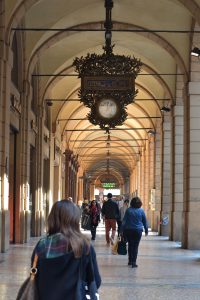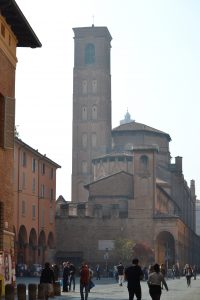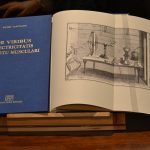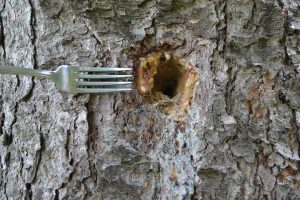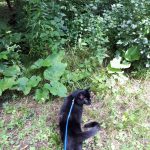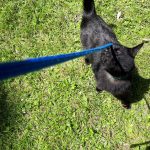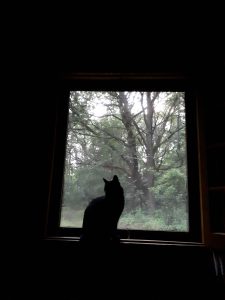Dedicated to the memory of Jakelin Caal and Felipe Gómez Alonzo, two children who died in immigration custody after crossing the American border from Guatemala.
Granny gave him Teddy when he was four. She’d patched him together from scraps lovingly sewn with tiny stitches in the dim evening light. He and Teddy became inseparable. But by the time he was five, his life and his world were very different.
Granny became thinner and thinner. The old woman wasted, slowly fading into quiet uninterrupted by breathe. His mother cried, and his father clamped his jaw tight against emotion. The little boy clutched Teddy closer. He always had food, but only years later did he understand that the extra bread Granny had given him wasn’t extra, but her own share of the family’s meager portion. His parents shared whispers in the dark, mouthing thoughts beyond his comprehension.
His mother woke him suddenly in full disorienting blackness, urging him to get up and dress quickly. Fumbling, he did his best, presenting himself to his mother and father with Teddy clutched tight under his arm.
His father took one last look before closing the door of their shack behind them. Outside, the boy became aware of shouting and gunfire and flashing lights in the distance. His parents had packed food and their few precious things into their two sheets. Each carried one. His father, looking wary, took the lead. His mother took the boy’s hand. He could feel her trembling, which scared him.
They walked, blinded by blackness. Quickly at first. Slowing as tiredness approached. They followed a narrow dirt road. Sometimes he tripped, righted by his mother’s hand. When he became too tired, his father lifted him up, cradling him against his strong back. His father smelled of sweat, and something unfamiliar. He clutched Teddy tight to his little chest, sandwiching him safely against his father.
Sometimes, others joined them. Strangers. Sometimes words were spoken. There seemed a quiet reverence in this march. A fear. A dim hope.
Then they came to the fence. They stopped. His father put him down. He looked up and saw his father’s tension. He could feel his mother’s hand shaking again as it gripped his little hand. The fence was taller than his father. It had spiky metal bits on top. All three of them looked up, daunted and fearful. He knew what was going to happen next, and was frightened, although he wasn’t sure why. He clutched Teddy even tighter.
Dawn was approaching. After urgent whispered discussion, and seeking in the dark for hidden dangers, his father quietly climbed, carefully lifting himself between and over the spiky metal bits. At the top, he stopped briefly, again checking the dark around them. He started to climb down, then dropped to the other side. A few shrubs broke under his weight. They waited in tense silence, seeing each other through the separating fence.
His father signaled that it was safe. His mother lifted him and Teddy as high as she could. He clutched the fence fiercely with both hands, feet finding toeholds, keeping Teddy wedged under his arm. Both parents urged him to climb. He was terrified, but knew he had to do what his parents asked. He climbed carefully, trying to be quiet. The fence was so high, his little arms and legs so tired. His mother started climbing too, her presence urging him onward. Eventually, he made the top of the fence. The metal spikes looked even more lethal close up.
His father urged him under the wire. His mother held the wire to make it easier for him. His little body was just small enough to get through, although he felt the sharp scratch though his thin shirt. His father motioned for him to drop. His father would catch him. He took a breath and dropped, landing in his father’s strong arms. His mother was suddenly beside them. His parents ran, his father still carrying him.
Loss. Teddy? Granny? Teddy? The little boy started crying the loud uncontrolled sobs of grief. His parents slowed but could not stop. They couldn’t understand what was wrong. Was their only child somehow injured?
Finding a dense thicket some distance from the fence, they stopped in the shelter of trees. As the boy sobbed and screamed, his father urgently checked limbs and body, finding the bloody slash across his tiny back where the razor wire had assaulted him. Watching in still silence, his mother looked scared. Then she noticed Teddy was missing and told his father what was wrong. Looking back, they could see the tiny shaped rags twisting from the razor wire on the fence top.
His father, aware of the risk of noise, urged for quiet. The exhausted boy was inconsolable. Hurried discussion between his parents. Then his father was gone, vanished into the nearing dawn. The boy, suddenly quiet, peered through the early light to see his father’s furtive glance, before swinging himself back onto the fence. He swiftly scuttled up the vertical metal, then raised one arm to rip Teddy down, before dropping back to earth and running quickly back to his family.
Overcome, the little boy jumped up to greet Teddy and hugged his father. His mother assured him that she would mend Teddy’s arm. But now, right now, they had to keep running silently through the coming day, and for many days to come.
Teddy now sat on his bookshelf. Whenever he glanced at his childhood toy, the events and emotions of that terrifying night flooded him. His mother had repaired Teddy’s torn arm with love and patience, but no access to materials. Since that night, the arm had looked a little thin, wasted like he remembered his Grandmother towards the end. But his mother and father had made it. He’d made it. And his precious Teddy had made it too.
UNICEF estimates that 30 million children are currently displaced by conflict, more than at any time since WWII. Let’s try for a better world in 2019.
© Catherine Jenkins 2018 all rights reserved

